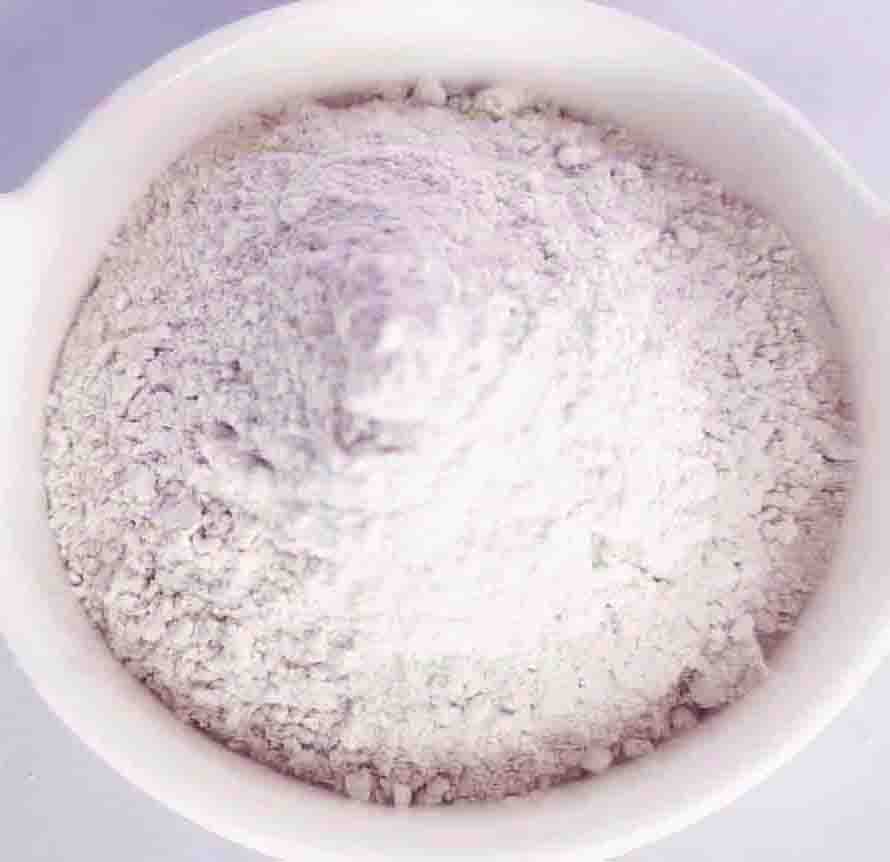What is Bentonite Slurry?
Comprised of both water and bentonite clay, bentonite slurry ranks among common mixtures used today downhole operations like drilling due to its unique attributes. Featuring montmorillonite as its primary constituent, this highly absorbent mineral swells substantially after moisture absorption which then combined with liquid/diluent creates a dense solution referred as “bentonite slurry”.
Thanks to its high viscosity profile which restrains movement or settling formation, the compound has found broad uses. Often employed to provide structural reinforcement for foundation piles or boreholes drilling throughout the construction space. The added fortification helps safeguard against hole wall instability and possible collapse that occurs during site excavation.
Application and Uses of Bentonite Clay Slurry
The use of bentonite clay slurry remains common within the oil and gas industry where it serves as an essential part of drilling operations as a primary form of drilling fluid. By providing robust lubrication along with cooling capabilities for the drill bit. It helps ensure proper maintenance during heightened activities on site. In addition to keeping wellbore cuttings in check it also delivers effective stability benefits to borehole walls – thanks to its optimal viscosity matched with suspension properties that make it a compelling choice for highly skilled professionals operating within this space.
During tunneling and excavation projects, bentonite clay slurry serves a crucial purpose. The versatile material can be thoughtfully injected into the soil to provide enhanced stability while reducing risks of collapse. Moreover, its ability to lend support to tunnel walls ensures structural integrity remains steadfast throughout all phases of the project. In a similar vein within foundries industry bentonite clay slurry functions as an integral component used as binding agent with molding sands to increase resilience and overall mold strength while casting metals perfectly. The added convenience this provides further ensures successful removing of molds’ impurities and gases during casting.
What is the Proper Bentonite Slurry Disposal?
Proper assessment of the nature and state of discarded bentonite samples cannot be overlooked. Those that remain unsoiled can fall under a benign category while contaminated ones with substances like hydraulic oils or diesel can draw risks in terms of developing hazardous wastes thus calling for more concerned approaches towards suitable disposal mechanisms that address their harmful decomposition influences on surroundings.
Those that are uncontaminated can be deemed benign, while those containing hydraulic oils or diesel may lead to the creation of hazardous wastes. It is imperative then to adopt more attentive strategies for their disposal that factor in their harmful effects on surrounding areas.
How To Enhance Pile Foundation Stability with Bentonite Slurry?
A key method in geotechnical engineering is the use of bentonite slurry to increase the stability of pile foundations. This may be accomplished by gradually adding bentonite powder into the water used for mixing. This step is necessary to make sure that all the particles are completely moistened and to keep them from clumping and producing balls that are only partially hydrated.
By slowly incorporating the bentonite powder or organoclay powder into the slurry mixture, it enables adequate hydration and dispersion, resulting in a constant and uniform distribution of the bentonite particles. By carefully following this procedure, the bentonite slurry will operate at its best, improving the stability of the pile foundation and the structure’s support.
How to Have Perfect Bentonite Slurry Mix?
For many construction and geotechnical applications, achieving the ideal bentonite slurry mix is essential. To guarantee optimum performance, a cement-bentonite slurry is made using certain ratios of the basic components. The following basic components are combined in equal amounts by mass to form the perfect mixture: 1 part water, 0.6-0.8 parts cement, 0.4-0.2 parts bentonite, and 0.005-0.01 parts sodium carbonate.
It is best to keep the water to cement and bentonite mixture at a 1:1 ratio. By balancing fluidity and stability, this maintains the slurry’s proper consistency and workability. The water facilitates hydration and serves as a vehicle for the cement and bentonite particles to efficiently mix and bind. The bentonite helps the slurry’s viscosity and stability, while the cement adds strength and durability. The addition of sodium carbonate aids in pH regulation and guards against the slurry’s excessive acidification.
What is a Bentonite Slurry Wall?
An underground barrier that is often used in geotechnical engineering and construction projects is a bentonite slurry wall, usually referred to as a soil-bentonite slurry wall. Slurry walls, in contrast to structural walls, serve largely as containment structures rather than load-bearing components. A bentonite slurry wall’s main function is to operate as a cut-off wall, effectively obstructing the flow of water.
A bentonite slurry wall is built by digging a trench or a series of panels that overlap each other. After that, a slurry of water and bentonite clay is poured into the trench. Water is combined with the very absorbent clay mineral bentonite to create a thick, viscous slurry. The trench is filled with this slurry, which is then allowed to harden and form a continuous barrier.
The slurry produces a solid, impermeable wall that stops the flow of water after it has solidified. The slurry’s bentonite clay expands when it comes in contact with water, forming a solid barrier that successfully prevents water migration. By containing groundwater, obstructing its movement, and regulating the flow of water through the earth, the resultant slurry wall serves as a hydraulic barrier.
How Deep can a Bentonite Slurry Wall Go?
Long reach excavators made expressly for slurry trenching may be used to build bentonite slurry walls, which can reach astonishing depths. These specialist excavators can dig down to a depth of around 90 feet (26 meters) because to their extended boom and arm arrangements.
Long reach excavators can efficiently dig the deep trenches needed to build bentonite slurry barriers when used in slurry trenching. The stability and reach of these equipment provide safe and accurate excavation at substantial depths. The excavators can retain stability and mobility while digging to the required depth thanks to the extended boom and arm combinations.
Cost of Bentonite Slurry Walls
Implementing bentonite slurry walls may be expensive or inexpensive, depending on the design specifications and the particular soil conditions. The expected expenses for a typical soil-bentonite wall built in soft to medium soil generally range from $540 to $750 per square meter.
These expenses include a range of things, including design, materials, labor, and equipment. It’s crucial to remember that these numbers are estimates and may change depending on the intricacy of the installation, site circumstances, and project-specific variables. For precise budgeting and financial planning, consulting with experts like Zhejiang Camp-Shinning and getting thorough cost estimates matched to the particular project needs are crucial.
What’s the Difference of Polymer Slurry vs. Bentonite Slurry?
Both polymer slurry and bentonite slurry are often employed in geotechnical and construction applications, however their reusability and retrievability are quite different. The benefit of polymer slurry is that it may be recycled several times without suffering appreciable quality degradation. Since it doesn’t absorb impurities, it may continue to operate and be useful throughout several projects. In fact, each project may recover and reuse more than 60% of the polymer slurry, making it a sensible and environmentally friendly choice.
However, there are restrictions on the amount of times bentonite slurry may be recycled. Its quality and effectiveness start to decline after being employed in two or three projects. Additionally, only around 40% of the bentonite slurry mix may be collected for reuse during the retrieval process. This decreased recovery rate raises expenditures and increases the need for new bentonite for every project.
What are the Advantages of Bentonite Slurry Walls?
The slurry walls are impervious to water due to the bentonite clay’s high swelling and absorption capacity. Projects requiring the containment of polluted groundwater or the avoidance of water intrusion into building sites may benefit greatly from this trait.
Slurry walls made of bentonite are efficient hydraulic barriers that stop water from permeating the earth. They are often used in a variety of building projects to manage water seepage, contain pollutants, and regulate groundwater levels.
Bentonite is a cost-effective method for building barriers and stabilizing soil since it is easily accessible and reasonably priced. Bentonite slurry barriers may be built quickly and easily using common tools, which further reduces the cost of the project.
What is Bentonite Slurry Density per kg/m3?
The density of bentonite slurry may change based on the formulation, water quantity, and other additives employed in the combination. The density of bentonite grouts typically falls between 1000 and 1350 kg/m3. This density range offers the necessary characteristics for the slurry to successfully carry out its intended function in a variety of applications.
The quantity of cementitious powder in the mixture affects the density of the slurry. Bentonite grouts generally include 100 to 450 kg/m3 of cementitious material. The inclusion of cementitious powder improves the slurry’s strength and stability, making it suited for uses including trenching, sealing, and ground improvement.


